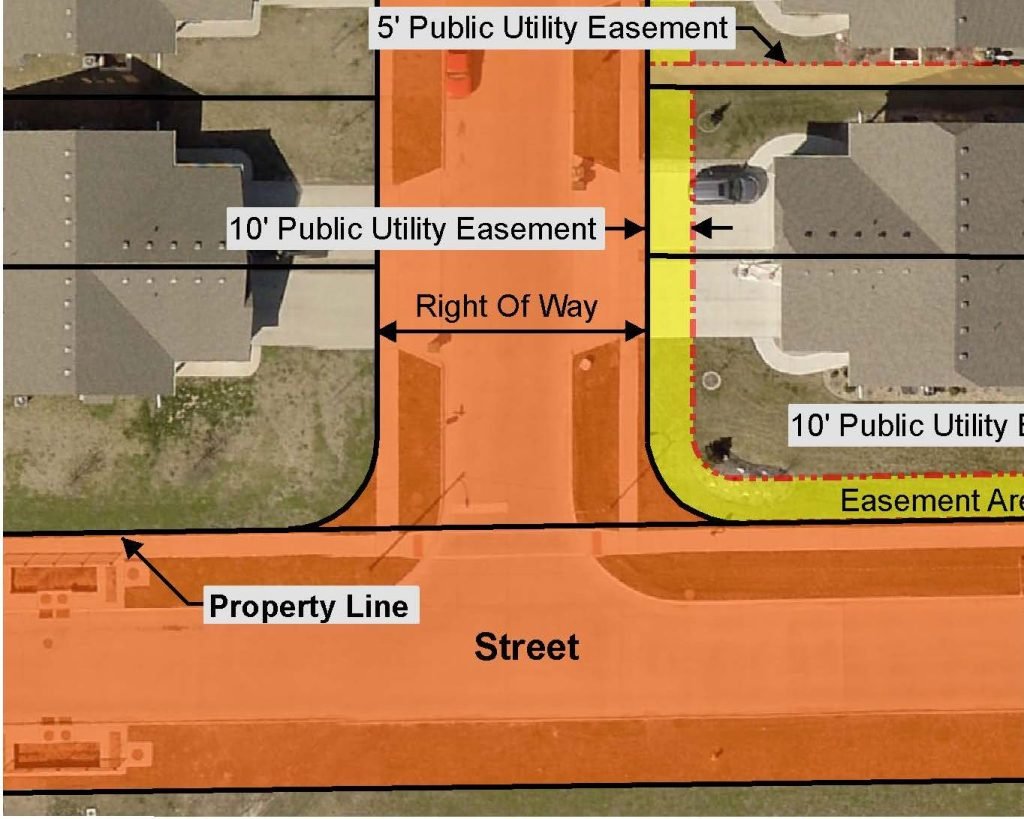Litigation Support Commercial
Commercial Appraisers In Litigation Support
Commercial appraisals for litigation support are an important part of the legal process. This type of appraisal is generally used when a case involves some kind of property dispute. A commercial appraisal for litigation support provides an unbiased, third-party opinion on the value of a property in question. The appraiser will examine the property and take into account factors such as location, condition, age, and market trends to determine its value.
The purpose of a commercial appraisal for litigation support is to provide evidence that can be used in court. It helps to establish the fair market value of the property and can also provide insight into how much it would cost to replace or repair any damages caused by the dispute. Additionally, if a business is involved in a lawsuit, an appraisal can help to determine how much money it would cost to replace any lost income due to the dispute.
Using an experienced appraiser who has knowledge of local markets and laws is essential when ordering a commercial appraisal for litigation support. The appraiser must have relevant expertise and experience in order to accurately assess the situation and provide an impartial report. Commercial appraisals for litigation support are an important tool for ensuring justice is served in legal proceedings involving valuable assets or businesses.
Now that we have a basic understanding of what commercial appraisals for litigation support are, let’s look at the different types of appraisals. Generally, there are two main types of appraisals used in litigation support: market value and fair market value. Market value is the price a buyer would be willing to pay for a property in an open market with reasonable time to complete the transaction. Fair market value is defined as the amount that a property would bring if it were sold by a willing seller to a willing buyer, both parties being fully informed and acting without compulsion.
In addition to these two types, there are several other appraisals used in litigation support, including investment return appraisal, liquidation appraisal, condemnation appraisal and specialist appraisal. Investment return appraisal is an estimation of the profitability of potential investments in real estate or other assets. Liquidation appraisal is used to determine the current value of assets if they were immediately put up for sale in an orderly manner. Condemnation appraisal determines the compensation owed by government entities when taking private land for public use or development projects. Lastly, specialist appraisal focuses on specific assets such as machinery or equipment which requires specialized knowledge and expertise to properly assess its worth.
Regardless of which type of commercial appraisal is needed for litigation purposes, it must be completed by an experienced real estate appraiser who can provide an accurate assessment of the asset’s worth according to established industry standards. This will ensure that all parties involved will receive fair compensation or damages due to their involvement in any legal proceedings related to the asset being appraised. Call Texas Commercial Appraisals for all your Litigation Support needs!
Commercial Litigation Appraisal Types
- Air BnB's
- Apartment Buildings
- Auto Dealerships
- Bed & Breakfast
- Church & Religious Facility
- Gas Station & Convenience
- Hospitals
- Hotels & Motels
- Industrial Buildings
- Medical Offices
- Mobile Home Parks
- Office Buildings
- Restaurants
- Retail Buildings
- RV Parks
- Self Storage Facility
- Senior Living
- Shopping Centers
- Subdivision Development
- Vacant Land (commercial)
Commercial Litigation Appraisal Uses
- Appraisal Review
- Asset Management
- Condemnation
- Cost Estimation
- Divorce
- Due Diligence
- Eminent Domain
- Estate Settlement
- Financial Planning
- Flood Buyout
- Hard Money Lending
- Investment Analysis
- Listing/Selling
- Litigation Support
- Portfolio Valuation
- Purchase/Buying
- Rent Comparability Study
- Replacement Cost
- Right of Way
- Tax Protest
FAQ to Texas Commercial Appraisals
The most important step to avoiding additional expenses is hiring your Commercial Appraiser directly. DO NOT order from an AMC (appraisal management company) that will add 20-40% on top of the appraiser’s fee. AMC’s often assign the appraisal report to random inexperienced appraisers because they bid lowest. We have competitive appraisal fees because we have eliminated “middlemen” which also reduces report completion times.
Be aware that many of these “management companies” are in other states operated by personnel with NO APPRAISAL EXPERIENCE OR LICENSES. It is important to ask any Appraisal Company about local licensing, qualifications, and experience prior to engaging them for any commercial appraisal assignment. Choose Texas Commercial Appraisals for a competitive fee and local MAI Designated Appraiser!
The MAI designation (Member Appraisal Institute) is highly respected throughout the world as one of the top certifications for commercial appraisers. It requires hundreds of hours of education and training before being granted this title which helps ensure quality services when engaging an appraisal firm or individual for your project. By choosing Texas Commercial Appraisals for your needs, you will gain peace of mind knowing that your property is being handled by experienced professionals who understand both local market conditions as well as national trends.
It is important to ask potential appraisers questions about their qualifications and experience prior to hiring them for a job. It is also wise to ask for references from other clients regarding their level of service and professionalism. By doing this, you can ensure that you are working with an experienced professional who will perform the appraisal accurately and efficiently.
When it comes to the commercial appraisal process in Texas, there are certain expectations for appraisers. They should be familiar with the local market, have a thorough understanding of the property type being appraised and its value, and be willing to communicate their findings clearly. In addition, they should be flexible and willing to work with the client’s needs and timeline.
Appraisers must also adhere to a strict set of ethical standards. This includes providing accurate assessments that are unbiased and free from conflicts of interest. Appraisers must also maintain confidentiality of all information acquired during the appraisal process. Furthermore, they should provide clear written reports that explain their conclusions in detail.
The appraisal process for commercial properties can be a lengthy one, so it’s important to know the industry standard. Depending on the complexity of the property and the appraiser’s schedule, an appraisal should take anywhere from one to four weeks. Furthermore, having all necessary documents ready ahead of time can help speed up the process significantly.
In order to ensure that your appraisal is completed in a timely manner, it’s important to hire an experienced local appraiser who knows the laws governing appraisals in your market area. Working with a qualified professional who understands all aspects of the process is key to getting your appraisal finished quickly and accurately.
The cost of a commercial appraisal can vary depending on the size and complexity of the property being appraised. Generally, the larger and more complex the building or land being appraised, the higher the fee will be. There are other factors that can determine appraisal fees such as intended use of the report, property type, and expedition of services.
On average, a commercial appraisal might range anywhere from $1,500 to many thousands of dollars. Specialized or large-scale assignments can be much more expensive and require several appraisers working simultaneously on multiple reports. You can expect to pay upwards of $10,000 to $50,000 for specialized or large-scale assignments.
Choose TCA for higher quality reports!
Service Areas with Litigation Support
Austin ♦ Arlington ♦ Beaumont ♦ Corpus Christi ♦ College Station ♦ Dallas ♦ El Paso ♦ Fort Worth ♦ Galveston ♦ Houston ♦ Laredo ♦ San Antonio
Previous Client Reviews!
D. Napier
“I’ve used Texas Commercial Appraisals several times for commercial appraisals in the Houston and Dallas areas. I chose them initially because they are competitively priced with great turn times. I continue to use them because their service is top notch.”
R. Brice
“We recently used Texas Commercial Appraisals to appraise a property we have owned over 15 years. This was by far the best Commercial Appraisal and hands down the best service. They respond quickly to calls or emails and the Appraiser Greg did a thorough appraisal and took the time to discuss details. I definitely would recommend this company to anyone considering a commercial appraisal in Austin or anywhere they service!”
F. Robbins
“I needed an appraisal one of our properties in the Memorial area. Our Appraiser was professional, courteous, thorough, and helpful. The Appraisal Report that was provided following his appraisal was complete and showed significant attention to detail. Seriously, I only wish we had found them sooner...”
G. Matthews
“I was in a serious time crunch and this company was able to schedule the site visit within 48 hours. Our Appraiser was exemplary and the report arrived two weeks later as promised! We exclusively recommend Texas Commercial Appraisals to other investors we know.”
J. Nguyen
"I recently had an apartment complex appraised, the appraiser showed up on time, was professional and conducted a thorough walk through. The report took about 3 weeks but, it was very thorough and spot on! I am very happy with the appraiser and the report.”
J. Martinez
“I was looking to get a Hard-Money loan to renovate and complete additions to my office warehouse. My Lender recommended Texas Commercial Appraisals and thank God they did. The loan funded weeks after the report was delivered, I was impressed!”
T. Washington
“Texas Commercial Appraisals came out on short notice to appraise an investment property I was in the process of purchasing. I found them online and not through my lender. I wanted an independent appraiser since the lender was connected to my broker. They were professional and knowledgeable in all matters. Definitely will use them again and recommend to associates, Thank You!





